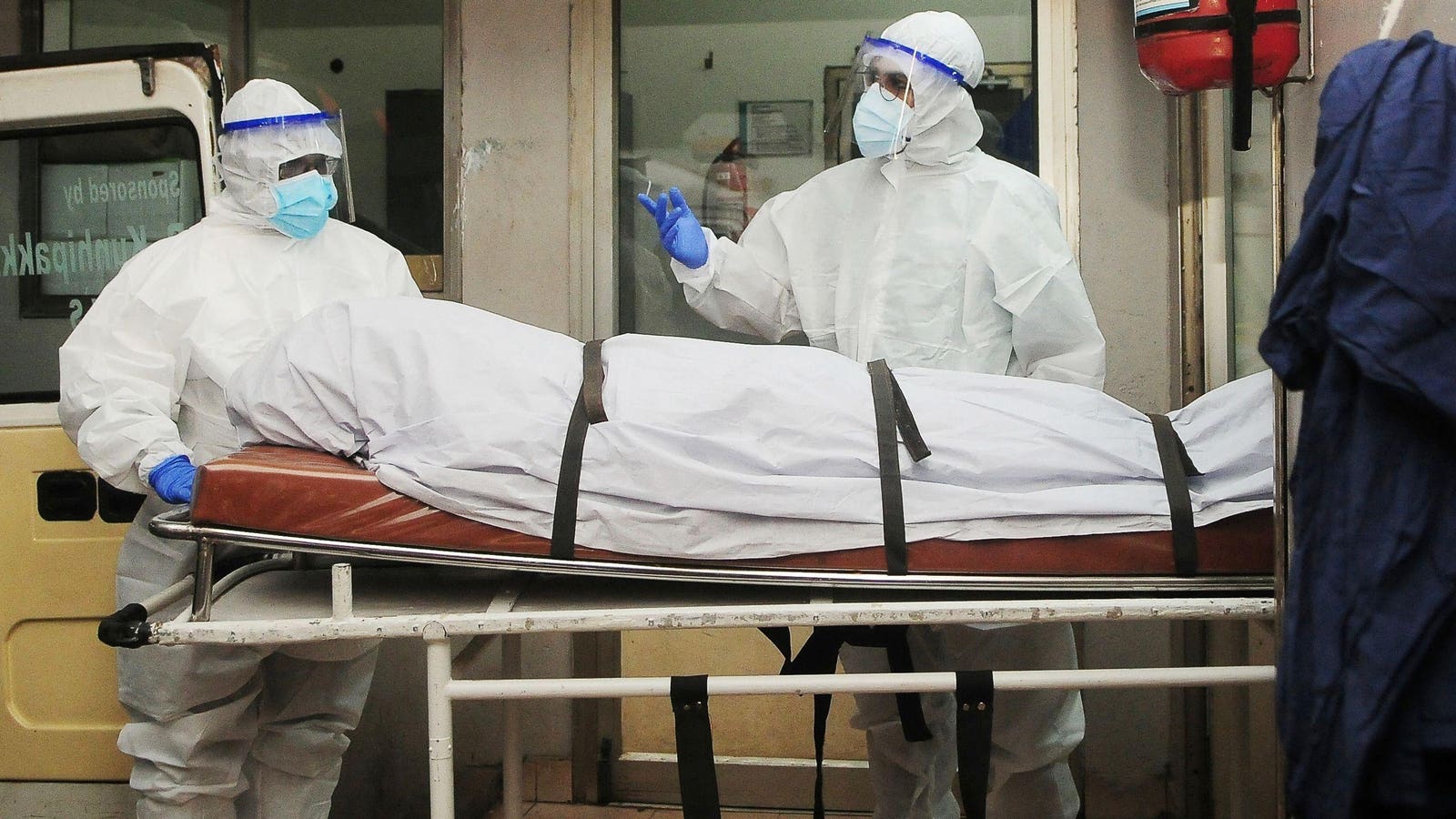Topline
Health workers in India are racing to contain the Nipah virus after a teenage boy died of the infection over the weekend, the latest in a series of outbreaks of the virus around the world. in the treatment that kills about three out of four people it infects. and has been flagged as an opportunity to spread a new epidemic.
Health workers wearing protective gear remove the body of a person who died of the Nipah virus.
Important Points
Nipah is a rare and potentially fatal virus that was first discovered in 1999 after outbreaks in pig and pig farms in Malaysia and Singapore.
Nipah is a zoonotic virus—meaning it can spread from animals to humans—and can be transmitted to humans through direct contact with infected animals or their body fluids or after eating contaminated food such as fruit products containing urine or saliva from infected bats.
Cases of Nipah transmission from person to person have also been reported during previous disasters, especially in households and caregivers of infected people.
In humans, symptoms usually appear between a few days and two weeks after infection, according to the World Health Organization, although as long as 45 days has been reported and it is possible that people become infected during this period (WHO says pigs are “highly contagious” during this incubation period).
Nipah symptoms usually start with fever, headache and respiratory symptoms such as cough which can quickly progress to encephalitis and seizures leading to coma within a day or two.
Between 40% and 75% of people infected with Nipah will die from the virus, health agencies estimate, with the rate varying depending on the outbreak and the strength of local medical systems to control it. the disease (long-term neurological conditions such as seizures and personality changes have occurred. reported among those recovering from encephalitis).
News Peg
Health workers in the southern Indian state of Kerala are rushing to find and identify a 14-year-old boy who died of Nipah on Sunday. State officials said they are tracking more than 350 people who may be at risk of infection, 101 of whom are considered “high risk” and six of whom are showing symptoms of Nipah. A large part of these names – about 70 people – are health workers who interacted with the youth. Kerala is considered to be one of the most vulnerable places from Nipah in the world and this outbreak is the fifth in the state since 2018. Experts warn that this area may be at high risk of infection. of the virus due to the destruction of natural bat habitats by humans. space.
A surprising fact
The Nipah virus partly inspired Steven Soderbergh’s Hollywood film “Contagion.” The 2011 film, which featured an all-star cast including Matt Damon, Laurence Fishburne, Jude Law, Gwyneth Paltrow and Kate Winslet, was widely praised for its scientific presentation and approach to infectious disease control. because of a myth and a very deadly one. viral outbreak.
Background Key
Fruit bats, also known as flying foxes, are Nipah’s natural hosts. Nipah belongs to the same group of viruses as many viruses known to cause disease in humans, including measles and mumps. Infection does not appear to cause noticeable mortality in fruit bats but the virus is known to infect a wide range of hosts—including humans, pigs, sheep, goats, horses, cats, and dogs—and has been reported causing the most severe diseases. at least humans and pigs in past diseases. Its ability to infect multiple hosts can make it difficult for public health professionals to track and prevent its spread. Outbreaks of Nipah have been reported in Bangladesh and India – the main areas where the disease has been reported since 2001 – as well as Malaysia, the Philippines and Singapore. Between 1998 and 2015, there were about 600 cases of Nipah reported, according to the WHO.
How Can We Prevent and Treat Nipah Virus Infections?
There are no drugs or vaccines approved for use against Nipah virus in humans or animals. Treatment for those infected is limited to supportive care and targeting specific symptoms when they occur. Some immunological therapies made with monoclonal antibodies are in the early stages of clinical trials, according to the Centers for Disease Control and Prevention. The antiviral treatment remdesivir, which is already used in humans for other infections, was also effective when given after exposure to the virus in animal studies, the CDC said. A vaccine against the Hendra virus, closely related to Nipah, is available for Australian horses and appears to provide some protection against Nipah infection.
What You Should Watch
Researchers are actively working on Nipah drugs and vaccines. Earlier this month, the Coalition for Epidemic Preparedness Innovations announced plans to begin human trials of monoclonal antibodies to prevent Nipah infection early next year. Antibiotics work by binding to the virus in a way that hopefully prevents it from infecting cells. In January, researchers began human trials for what could be the first Nipah vaccine. The pilot study is being developed by the University of Oxford’s Center for Pandemic Sciences. It uses the same viral vector technology as the COVID-19 vaccine that the team developed and developed with pharma giant AstraZeneca.
Get Forbes Breaking News Text Alerts: We’re introducing text message alerts so you can stay up-to-date on the biggest news stories of the day. Text “Alerts” at (201) 335-0739 or sign up Here.
Continue Reading
Disease X: The 100 Day Plan to End Epidemics (Kate Kelland’s Book)
#Deadly #Nipah #Virus #India #Races #Epidemic

